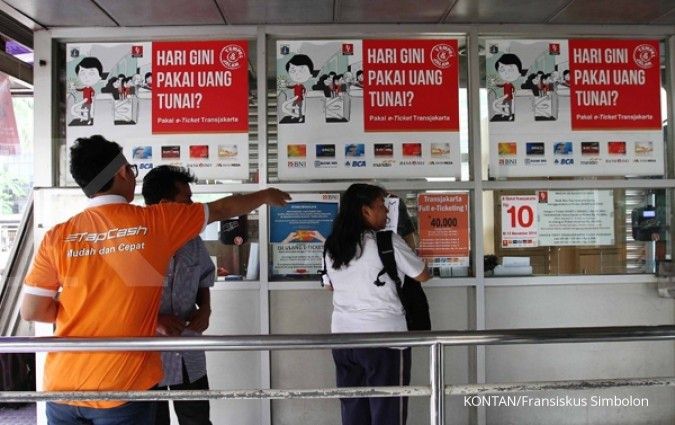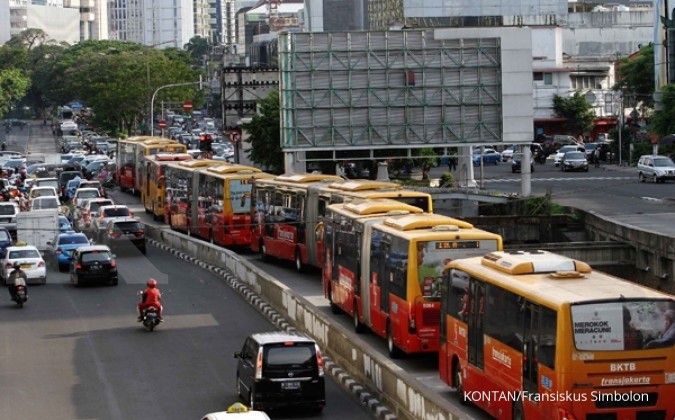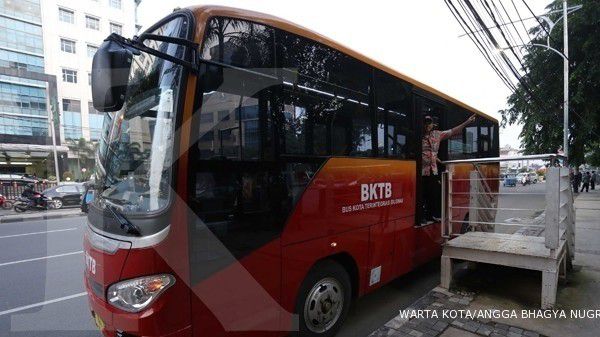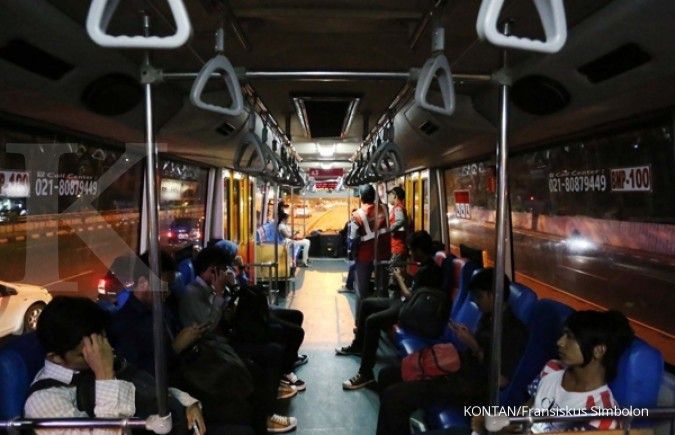JAKARTA. Expectations are high that the newly formed city-owned bus operator PT Transportasi Jakarta (Transjakarta), which will officially take over the operation of Transjakarta buses on Jan. 1, will improve services.
Jakarta Transportation Council (DTKJ) member David Tjahjana said during a discussion on the Transjakarta operation transition process on Thursday that the new firm could improve all aspects of Transjakarta bus services, including security, safety, convenience, affordability, equality and regularity.
“Transjakarta should be able to fulfill the minimum service standard set for land transportation,” he said.
David, who is also the coordinator of passenger community Suara Transjakarta, said in terms of security, besides installing CCTV, the company should also pay attention to small details like providing panic buttons. “Many people are uncomfortable screaming when they are being harassed, so panic buttons would help,” he said.
Criminal incidents like pickpocketing and sexual harassment often occur both on Transjakarta buses and at bus stops.
PT Transjakarta had previously claimed it would install CCTV cameras at all bus stops and in new buses to prevent crime.
David said the company should also equip buses with clear audio and video information for emergency situations. “The information should also be in Braille,” he said.
He said all types of passengers — workers, students, veterans, retirees and passengers with special needs “should be accommodated, for example, discounts for students and veterans, and facilities for disabled passengers”.
The city administration is handing over the operation of Transjakarta buses, previously managed by an operational unit at the Transportation Agency, to the city-owned company, hoping it will improve services and reduce subsidies.
Last year, the city spent Rp 900 billion (US$72.9 million) to subsidize the Rp 3,500 fare, which has never been increased in the last 10 years.
PT Transjakarta, as a limited liability company, can be flexible in taking actions to improve services, like revamping bus stops, procuring new buses, cooperating with other companies to build gas filling stations, and finding other income.
Under the Transportation Agency, many Transjakarta bus facilities have become old and poorly maintained as they were dependent on the city budget.
The city administration is now finalizing the asset takeover process, worth Rp 1.91 trillion, in the form of buses, offices, bus stops and pedestrian bridges from the Transportation Agency to PT Transjakarta.
Wahyu, a female bus driver with PT Trans Batavia, said she hoped the new company would pay attention to driver welfare. “The salary is still different between operators,” she said. There are eight operators that handle 12 Transjakarta routes across the city.
Wahyu also hoped the company would provide toilets for drivers and places to park when they changed shifts.
Junot Tambunan, the owner of operator PT Jakarta Mega Trans, said he was pessimistic that the company would cooperate better with the operators. “We are ill-informed about the steps Transjakarta will take regarding our partnerships,” he said.
He said some of the contracts would expire next year but when they tried to discuss this with the management, they knew nothing.
“We hope they can be more professional, but they have started the company unprofessionally,” he said.
Junot said he hoped that the company would involve the existing operators when planning the future of Transjakarta. (Corry Elyda)
Transjakarta expected to revamp service in 2015
December 12, 2014, 09.43 PM
/2014/12/10/212641263.jpg)
ILUSTRASI. Maybank Indonesia berbagi tips soal menaklukan lari marathon
Source: The Jakarta Post
| Editor: Hendra Gunawan
Latest News
-
March 05, 2026, 02.11 PM
Indonesia Gives Meta 'Stern Warning' Over Disinformation
-
March 04, 2026, 05.43 PM
Indonesia's Pertamina Unit Monitors Safety of Its Vessels in Middle East
-
March 04, 2026, 05.27 PM
Fitch Cuts Indonesia Credit Rating Outlook to Negative
-
March 03, 2026, 12.18 PM
Indonesia Hopes to Get MSCI Response to Capital Market Reforms Before May
-
March 02, 2026, 04.45 PM
Indonesia has Seized 5 Million Hectares of Palm Oil Plantations, Task Force Says
-
March 02, 2026, 01.10 PM
Asian Assets Slide as Mideast Strikes Spark Oil Spike, Haven Rush
-
March 02, 2026, 10.49 AM
Bank Indonesia Monitoring Market Movements in Response to Conflict in Middle East
-
February 25, 2026, 08.28 PM
Inpex to Solicit Bids for Construction of Indonesia's Abadi LNG Project in Mid-2026
-
February 24, 2026, 03.38 PM
Eni to Reach Final Investment Decision for Indonesia Gas Projects Next Month













